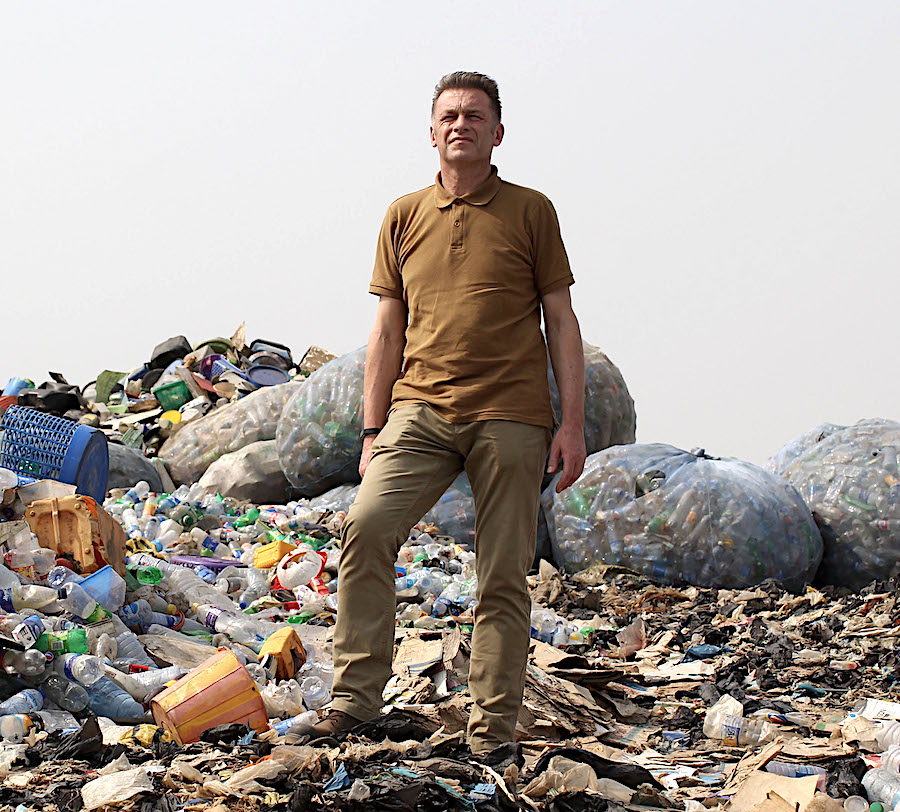We hear plenty of debate about climate change and its disastrous potential, but the ballooning growth of the world’s population may be the most critical issue facing humankind. Chris Packham thinks so (“it’s undeniably the elephant in the room,” he says, though lack of elephants is one of its many alarming symptoms) and in this documentary for BBC Two he criss-crossed the planet to show us the evidence.
The earth’s population is about 7.7 billion now and is predicted to reach 10 billion by 2050. Packham touched down in Sao Paolo, Brazil, where the population is five times greater than London’s and the inhabitants are having to pay to drill their own private wells to find a water supply. Then he visited formerly forested areas of Brazil where the natural animal and plant life has been obliterated to grow soya (to feed animals to provide more food for the expanding masses of people) or eucalyptus trees (imported from Australia to make toilet paper). In Lagos, he found a pop-up city built on mounds of compacted garbage, where its two million inhabitants somehow scratched out a nightmarish existence (pictured below, Packham in Lagos).
 Packham is a strange but compelling presenter, who often seems as if he’s slightly irritated at having to explain the obvious to a bunch of dunderheads. He talked about his experiences as an Asperger’s sufferer in a previous documentary, and his condition seems to have given him a kind of tunnel vision which lets him cut to the core of an argument without worrying too much about trampling on people’s toes.
Packham is a strange but compelling presenter, who often seems as if he’s slightly irritated at having to explain the obvious to a bunch of dunderheads. He talked about his experiences as an Asperger’s sufferer in a previous documentary, and his condition seems to have given him a kind of tunnel vision which lets him cut to the core of an argument without worrying too much about trampling on people’s toes.
In one scene, he roped in his poor old dad as evidence of how science can be a two-edged weapon. Medical advances have allowed Packham Snr to reach an advanced age which wouldn’t have happened in previous centuries. This was “anti-nature”, Packham suggested, since evolution’s original plan was that people were supposed to die younger and be replaced by new generations. Now, the ever-ageing population is threatening economies, labour markets and healthcare systems.
But it wasn’t all apocalyptic gloom. India and China have both demonstrated (albeit temporarily and at least partially by force) that population control is possible, and, contrary to popular belief, the birth rate in Africa is falling. Nonetheless Packham, who lives alone in the New Forest with his dogs, remains fearful for the fate of his beloved natural world. “We’ve got to look after this planet,” he insisted. “There is no Planet B, and this one is beautiful.”















Add comment